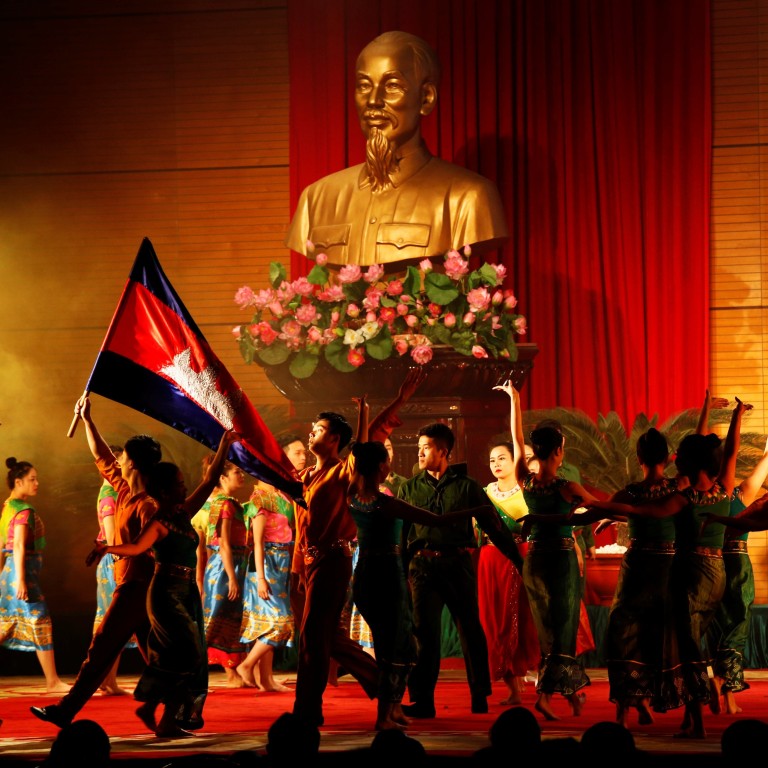
History by numbers: Hun Sen’s lesson in leadership lost on Cambodia’s youth
- January 7 is four decades since civil war but country is still divided, with older generations hanging on to the past, while young people focus on the future
Grand celebrations will take place in Phnom Penh on Monday as Cambodia marks the 40th anniversary of the day the genocidal Khmer Rouge was overthrown by forces backed by Vietnam.
But the date has become a fault line in the country’s changing society.
For older Cambodians, like government spokesman Phay Siphan, it represents freedom.
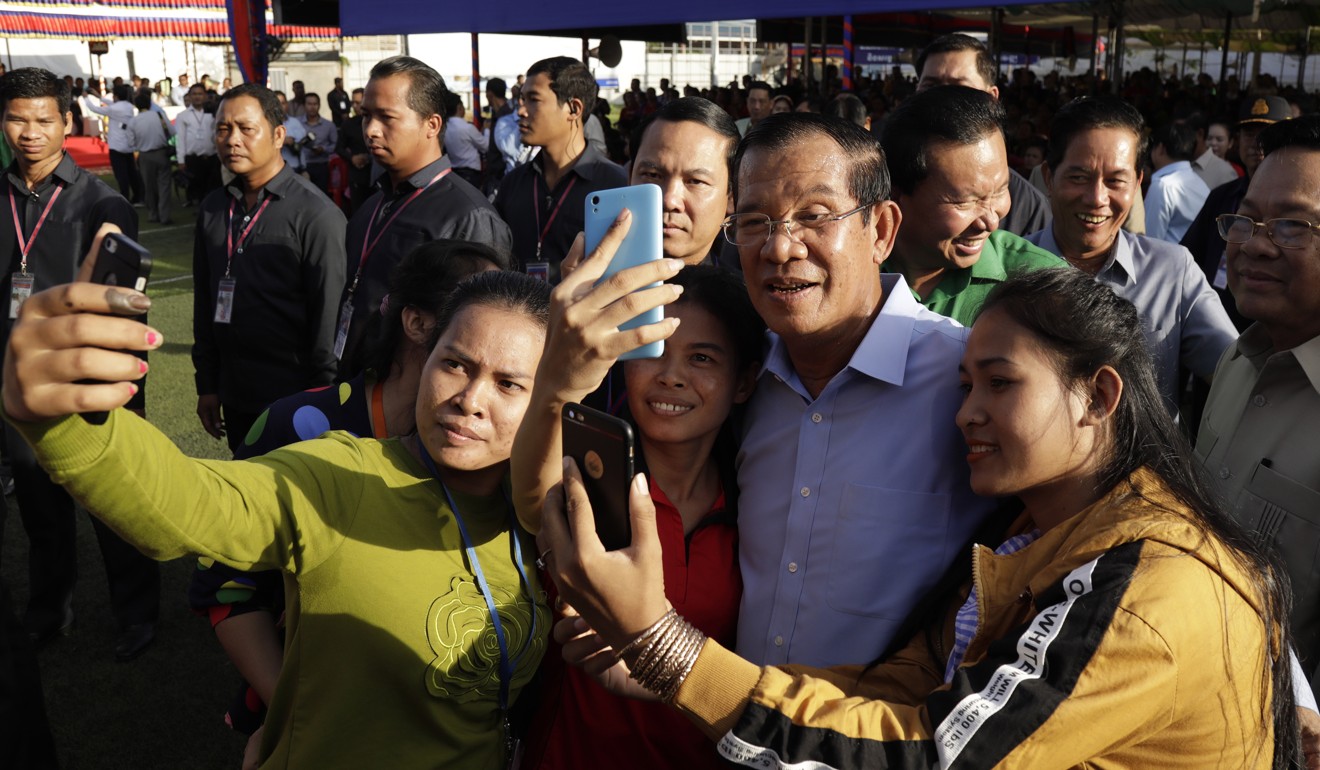
However, with more than 70 per cent of the population below the age of 35, government claims the day was akin to a rebirth is falling flat.
“For the Cambodian young generation, I think many of them almost forget what [January 7] is,” said Yong Heng, a student and founder of the Asean Young Political Leaders Network.
Noan Sereiboth, a political blogger and member of youth forum Politikoffee, said for many young people the day’s meaning depended on their politics.
Cambodian activist Loung Ung on how she survived the Khmer Rouge
Some follow their parents in supporting the Cambodian People’s Party (CPP). They talk about the importance of Hun Sen – a former Khmer Rouge commander who defected – bringing peace, stability and development to Cambodia, while others want to focus on the future, according to Sereiboth.
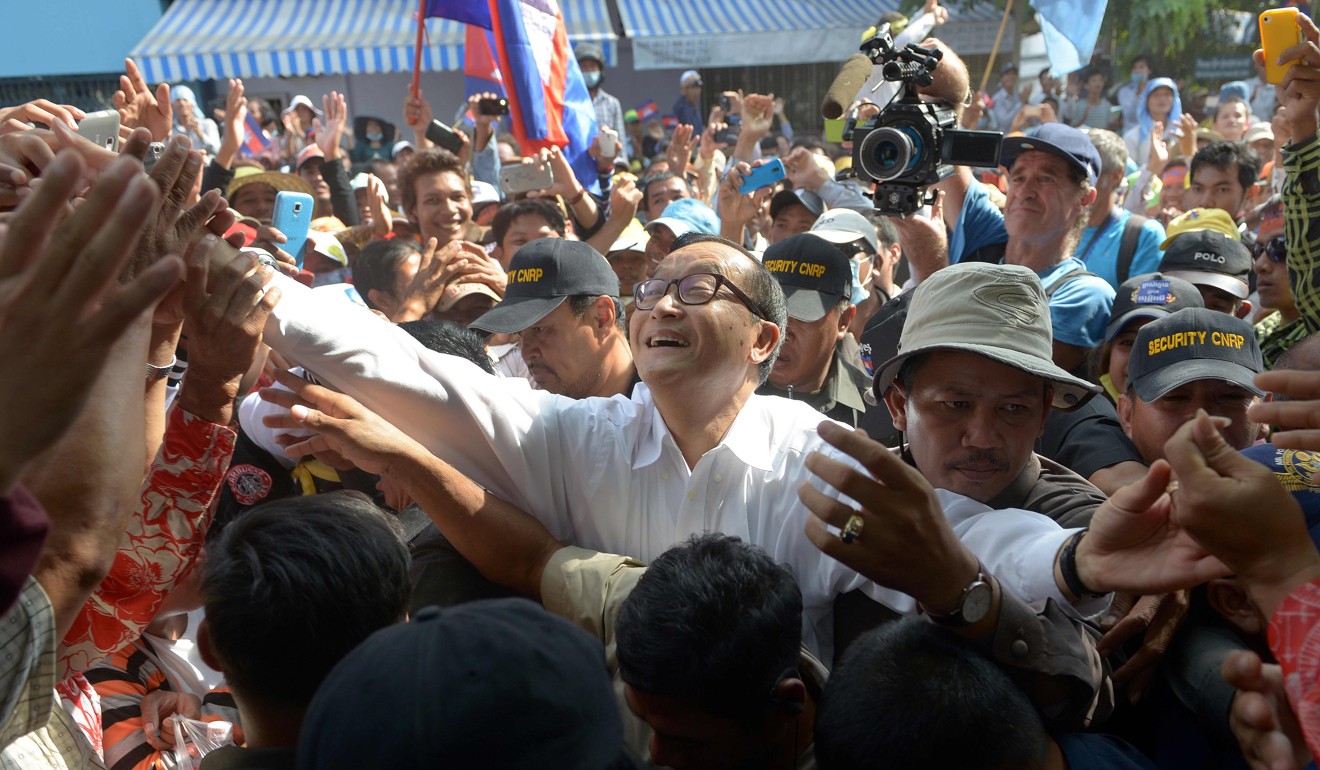
Sam Rainsy, former leader of the dissolved opposition Cambodia National Rescue Party (CNRP), has described January 7 as the beginning of an occupation by an enemy who installed a corrupt and oppressive puppet government and said the people are still suffering.
Hun Sen has shown an ardent desire to re-explain his role in Cambodian history to the people
Many youth hoped for change through the CNRP. The opposition party came close to victory in the 2013 general election and made hefty gains in commune elections four years later. The party was then outlawed and its leader, Kem Sokha, arrested on charges critics say are politically motivated.
The CPP now controls all 125 National Assembly seats.
While millions of Cambodians supported the CNRP, there were no signs of protests after post-election demonstrations in 2013 resulted in a bloody crackdown.
Astrid Noren-Nilsson, an associate senior lecturer at Sweden’s Lund University, said Hun Sen was seeking to present this chapter in Cambodian history to the next generation.
“Since the emergence of more contentious politics in 2013, Hun Sen has shown an ardent desire to re-explain his role in Cambodian history to the people,” she said. “Part of this is … about establishing his historical legacy in a definite manner for posterity. But … more importantly, about clarifying it to today’s electorate – and establish a new relationship with youth, to whom January 7 has been but a distant date in history.”
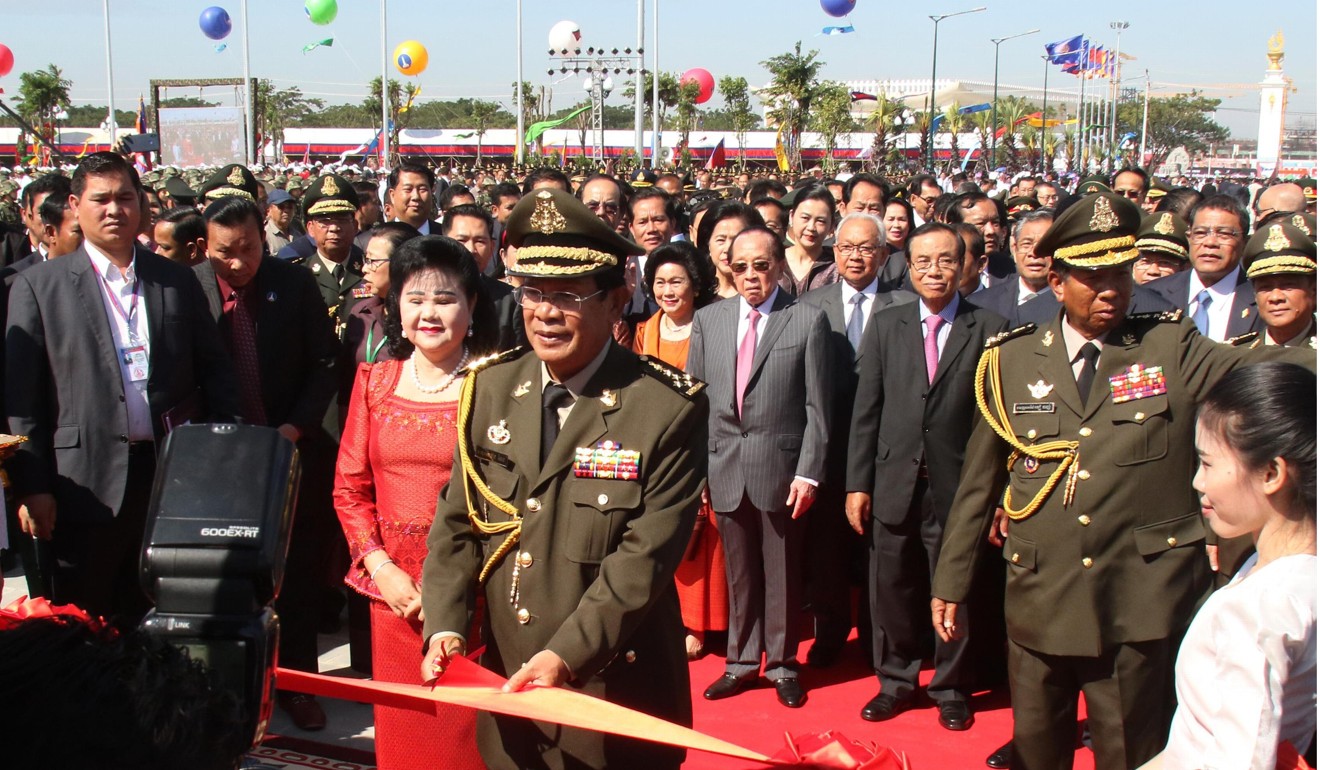
Hun Sen was also keen to highlight last month’s 20th anniversary celebrations to mark the fall of the Khmer Rouge, who continued to control small pockets of the country until 1998. The official end of the civil war is something he has touted as one of his greatest achievements and tens of thousands gathered for the inauguration of a US$12 million “Win-Win Monument”. Young people were drawn to the event because of pop star performances after the ceremony.
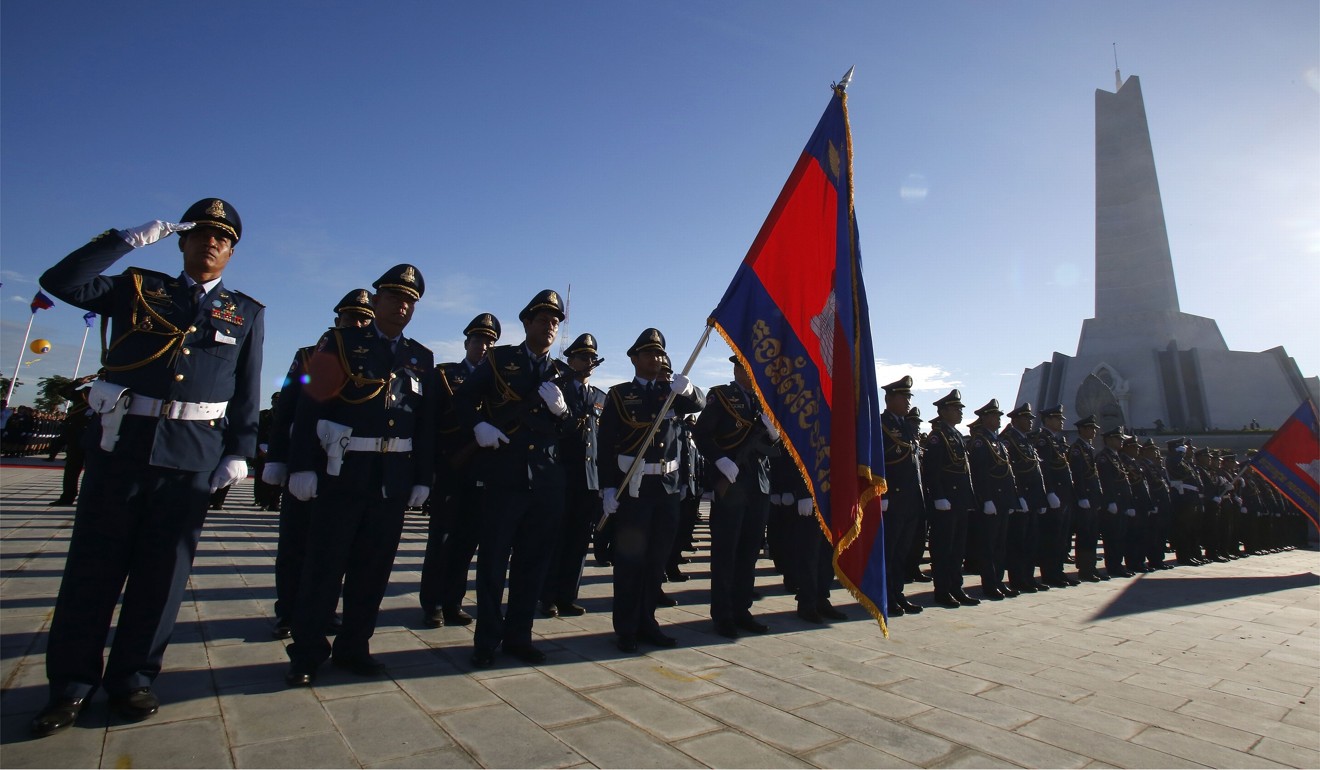
Sam Rainsy, who lives in Paris to avoid imprisonment on what his supporters say are trumped up charges, regularly raises January 7 in an attempt to paint Hun Sen as a puppet of Vietnam, which the opposition has tried to blame for Cambodia’s problems.
On the anniversary three years ago, Sam Rainsy posted a cartoon on his Facebook page of a Vietnamese soldier setting Cambodian homes on fire in 1975 only to return in 1979 to douse them with water. It was an apparent attempt to blame Khmer Rouge atrocities on Vietnam.
Cambodian strongman Hun Sen unveils monument to himself
Anti-Vietnam rhetoric has long been popular in the country, where many distrust their eastern neighbour. This appears to continue, as well as growing anti-Chinese sentiment due to the increased influence of Beijing on the Cambodian government and a huge rise in tourists from China.
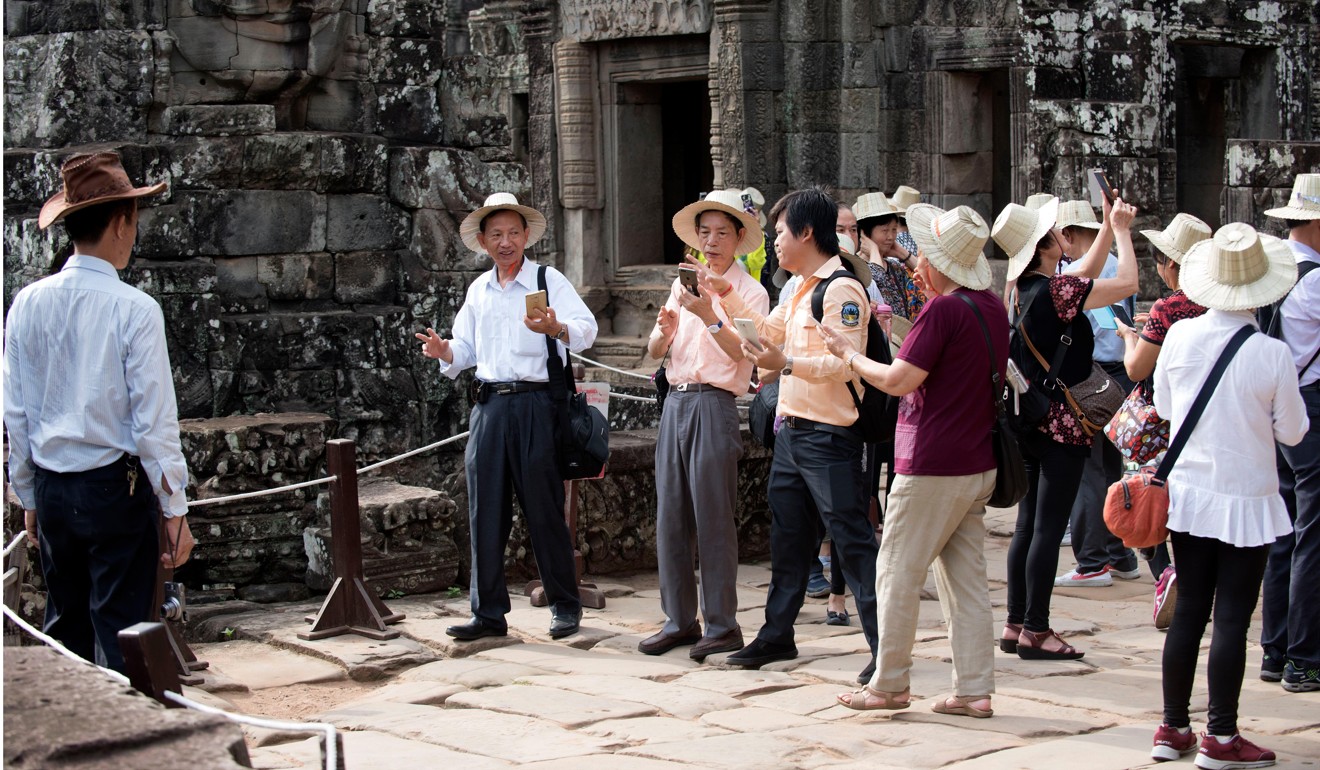
Political analyst Meas Nee said the ruling party and its rivals will probably continue peddling their January 7 narratives.
“When you look at the way the politicians and political parties now try to inject this ideology into the young generation as well … I think politicians still try do dominate [the youth] quite a lot,” Nee said. “This will end up with more divisions.”

